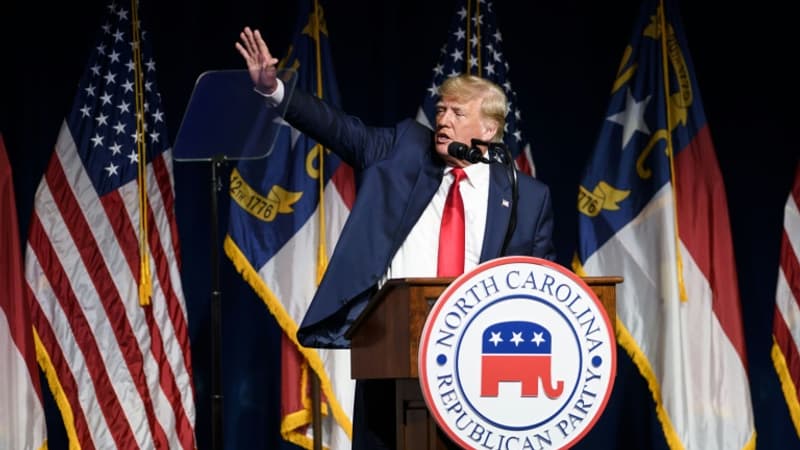Described as risky or even dangerous, the Democratic strategy of helping radical pro-Trump candidates in the Republican primaries, seen as easier to beat in the midterm elections, appears to have paid off.
In Maryland, Dan Cox, who supports Donald Trump and his baseless accusations of electoral fraud, thus benefited from at least 1.7 million dollars from the Democratic Party to represent the Republican Party in the midterm elections, according to an analysis of Washington Post. On Tuesday, he leaned heavily on Democrat Wes Moore, the state’s first black governor.
In Illinois, no less than 34.5 million dollars have been invested in the candidacy of Darren Bailey, also supported by Donald Trump, for the position of governor, in particular through advertising spots that emphasize his link with the former president and portray their rivals as moderate centrists. .
A strategy that is not new
Thanks to an outpouring of support from the Trumpites, Darren Bailey won the party’s nomination before being defeated on Tuesday by Democratic incumbent JB Pritzker, who described Darren Bailey as too dangerous to be governor.
The strategy of interfering in the opposing party’s primaries to promote their weaker candidates is not new, but it has gained more attention this year.
Many call her a hypocrite, as Democrats and Joe Biden publicly and repeatedly insisted that democracy itself was at stake in the midterm elections.
And it might well have turned against them if some of these Republicans had created a surprise by winning key positions in certain states. “The Democratic Party campaign committee had received a lot of criticism at the time, but it seems that this strategy paid off,” analyzes Steven Maviglio, a strategy consultant.
“Helping those who deny the election results to climb the ladder was a long shot. But it was worth it,” he adds.
“It’s a Big Bet”
The consultancy hopes that this tactic will be used more frequently in the future, despite the reservations of its detractors. “Ordinary voters don’t understand all of this,” she said, “but people who know how to run and win campaigns have no limits in terms of strategy.”
“It’s risky. There’s no question about it. It’s a big gamble,” added Steven Maviglio. “But like most big bets, when they pay, they pay big.”
Source: BFM TV


